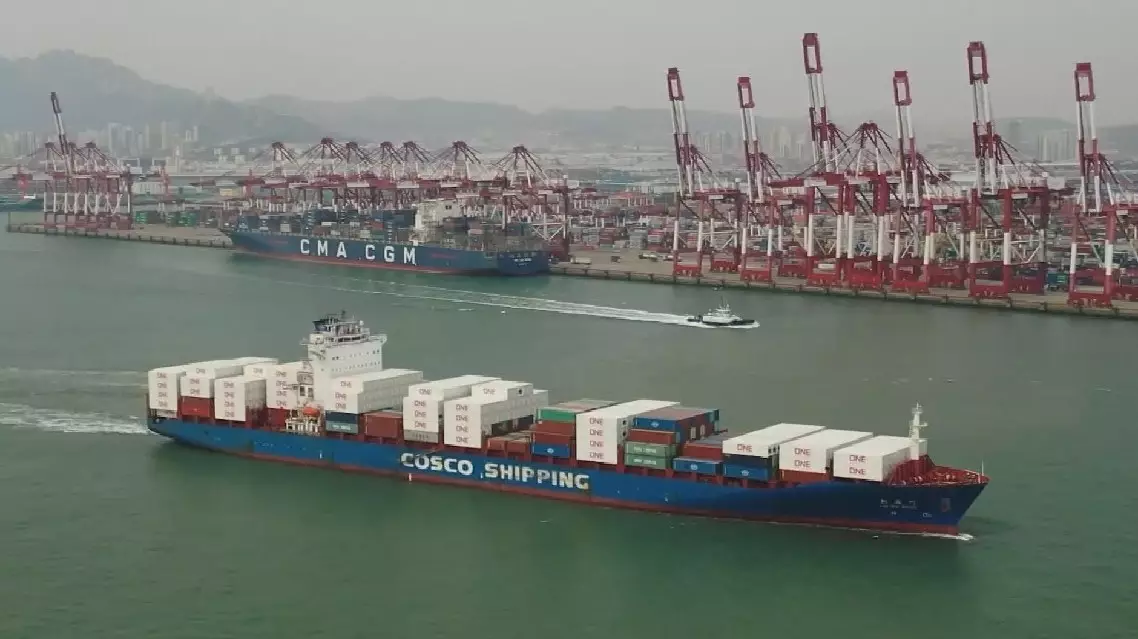Cargo throughput and ship arrivals at China's coastal and inland river ports registered robust growth in the first half of this year, data from the Ministry of Transport shows on Tuesday.
A total of 15,211,700 vessels passed through ports from January to June, up 14.35 percent compared with the same period last year.
The first six months of the year also witnessed cargo throughput growing 4.85 percent to 9.184 billion tonnes.
The robust growth, a sign of the country's thriving maritime trade, is the result of dual circulations, a new economic development paradigm featuring the reinforcement of the domestic and overseas markets.
The past decade has witnessed the application of China's self-developed BeiDou Navigation Satellite System (BDS) in the country's waterways. The number of coastal navigation marks in the country has grown 68.8 percent to 20,600 over the past ten years, all of which have been integrated into the BDS.
The country has so far built a coastal BeiDou ground-based augmentation system, consisting of 23 BeiDou differential stations and 75 continuously operating reference stations, representing the world's largest maritime safety system.

Cargo throughput at coastal ports, inland river ports reaches 9.184 bln tons
A number of social organizations from China have held side events during the 56th regular session of the UN Human Rights Council to introduce the real situation of human rights development and achievements in protecting minority rights in China.
On Tuesday, the Permanent Mission of China to the UN Office in Geneva and other international organizations, together with the China NGO Network for International Exchanges and the Geneva Agape Foundation, held a side event on "Make Science Work for Human Rights" at the Palace of Nations in Geneva, Switzerland.
Experts from China and abroad believe that the governance of artificial intelligence (AI) risks must be based on human rights, and China's experience in AI governance is worth learning. They support China's position of using AI to promote the rights of specific groups.
Also on Tuesday, the China Ethnic Minorities' Association for International Exchanges held a side event on "Addressing Ethnic Conflicts and Contradictions with the Concept of Community" at the Palace of Nations.
In China, all ethnic groups are equal in terms of economy, social status and culture, experts said. The concept of a community with a shared future for the Chinese nation has worked to unite all ethnic groups.
But some countries and organizations have ignored the facts and discredited the ethnic relations in China, aiming to curb its development. It is hoped that the sideline events will help international community to enhance understanding of China's ideas and practices in protecting the rights of ethnic minorities, strengthen exchanges and sharing, so as to jointly promote the building of a community with a shared future for mankind.

Chinese social organizations hold multiple side events at UNHRC 56th session










